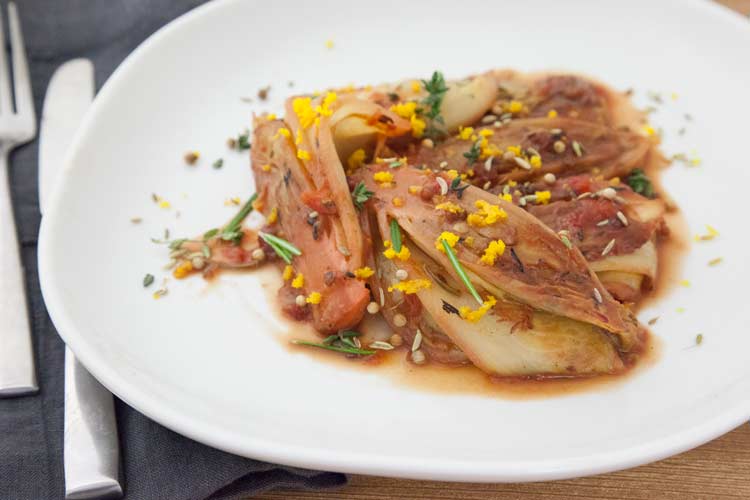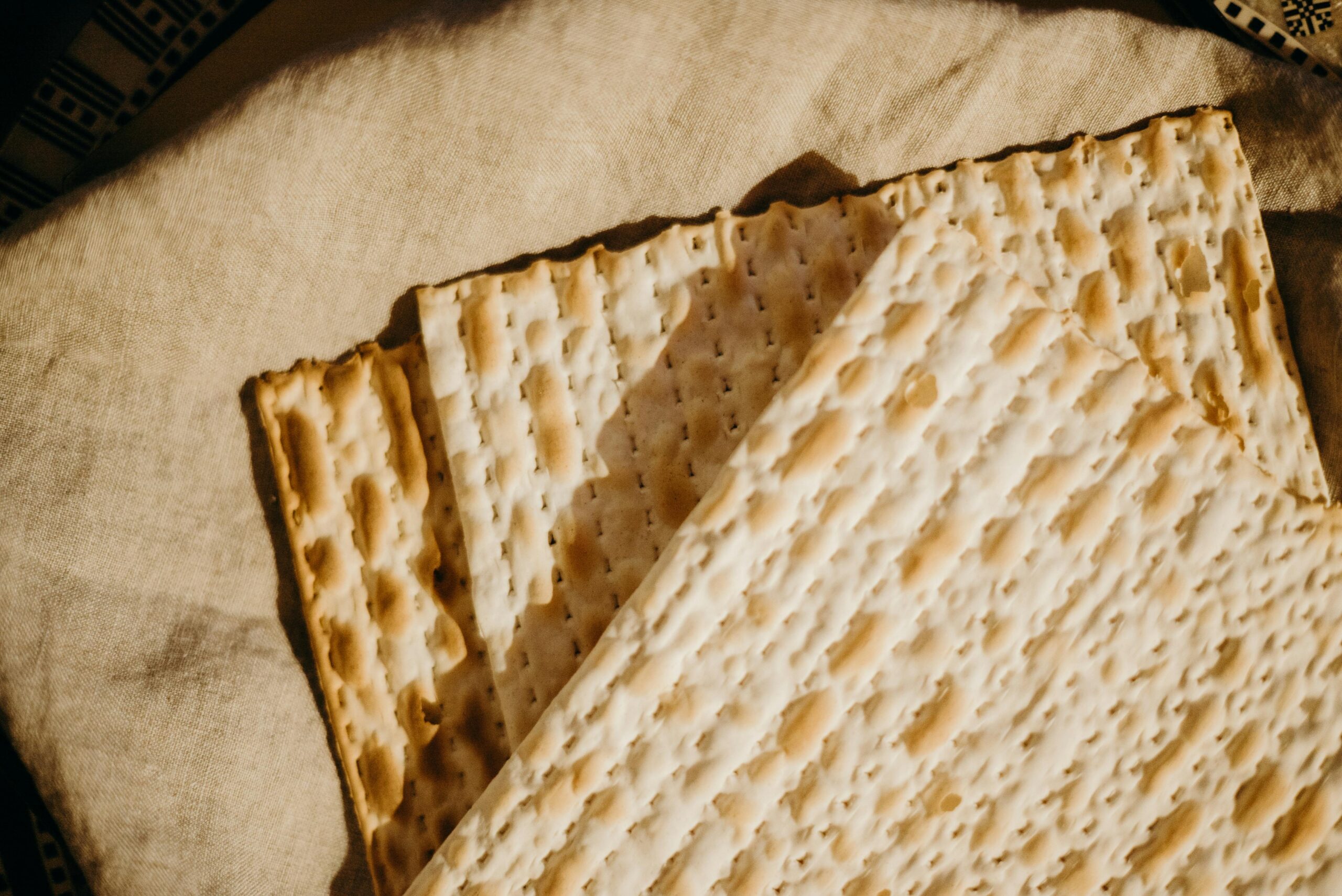Recipe: Blood-Orange Roasted Endive

When most people think of winter cooking they picture slow-braised meats, roasted root vegetables, and big pots of soup simmering away slowly on a stove. While we love all of those, sometimes we want something a little lighter, even when it’s chilly.
One of our favorite winter recipes combines the warm, comforting appeal of braised endive with the exhilarating zing and lively colors of blood orange and fresh herbs. It all comes together to make a dish so good it’ll almost make you wish winter lasted all year long.
This quick and easy recipe is a great way to make use of the bounty of citrus fruits that are one of the few consolations of winter. We recommend using blood orange juice for this recipe. Not only does it have a lovely aroma and flavor, it also adds a jolt of beautiful ruby-red color.
Blood Orange-Roasted Endive
Serves 4
INGREDIENTS
1 lb white endive
1 tbsp white granulated sugar
3 tbsp olive oil
2 tbsp unsalted butter
1 tsp fennel seed
1 tsp coriander seed
2 tbsp red wine vinegar
2 cups blood orange juice
1 blood orange
1 sprig each: rosemary, sage, and thyme
Salt and freshly ground black pepper to taste
To serve
Finely grated zest of one organic, unsprayed orange
Picked leaves of rosemary and thyme
Extra virgin olive oil
INSTRUCTIONS
First, cut the orange into suprèmes.
Using a short, sharp knife, carefully cut the peel away from the orange. Take care to remove all the white pith but make sure not to cut away too much of the fruit itself. Cup the peeled orange firmly but gently in the palm of your non-dominant hand. Using the sharp paring knife, cut between the membranes of the orange to release the segments of orange. Make sure to use the knife cautiously and not exert too much pressure—you could end up doing damage to both the orange and your palm.
In the same manner, remove all the segments of orange from the fruit. Set aside in a small bowl until ready to use. Squeeze any extra juice that remains in the cleaned orange into the 2 cups of blood orange juice you already have set aside.
Examine the heads of endive. Remove any leaves that look wilted or brown. Cut the heads into half lengthwise and season the cut sides evenly with salt, black pepper, and sugar.
Brush the cut sides of the heads of endive with olive oil.
Heat a nonstick sauté pan over medium heat. Place the sliced endives cut-side-down on the pan and let them cook for 2–3 minutes, or until they begin to caramelize.
Add the butter, fennel, and coriander seed to the pan. Once the butter has melted, move the cut endive around gently to make sure that the butter gets underneath it.
Add the vinegar and blood orange juice to the pan along with the sprigs of rosemary, sage, and thyme. Reduce the heat to low and allow the endive to cook, covered with a circle of parchment paper, for 4–5 minutes before turning the halves of endive over and adding the segments of orange to the pan.
Continue to cook until the sauce has thickened and coats the endive.
Season with salt and pepper as needed. Finish with a drizzle of extra virgin olive, and a sprinkling of orange zest, fresh rosemary, and thyme.


 Kick Off the Football Season with Harissa Chicken Wings. Bonus: Cucumber Ranch Dip.
Kick Off the Football Season with Harissa Chicken Wings. Bonus: Cucumber Ranch Dip. End of Summer Romance—with Vegetables
End of Summer Romance—with Vegetables Passover Seder
Passover Seder Happy Valentine’s Day from Union Market
Happy Valentine’s Day from Union Market